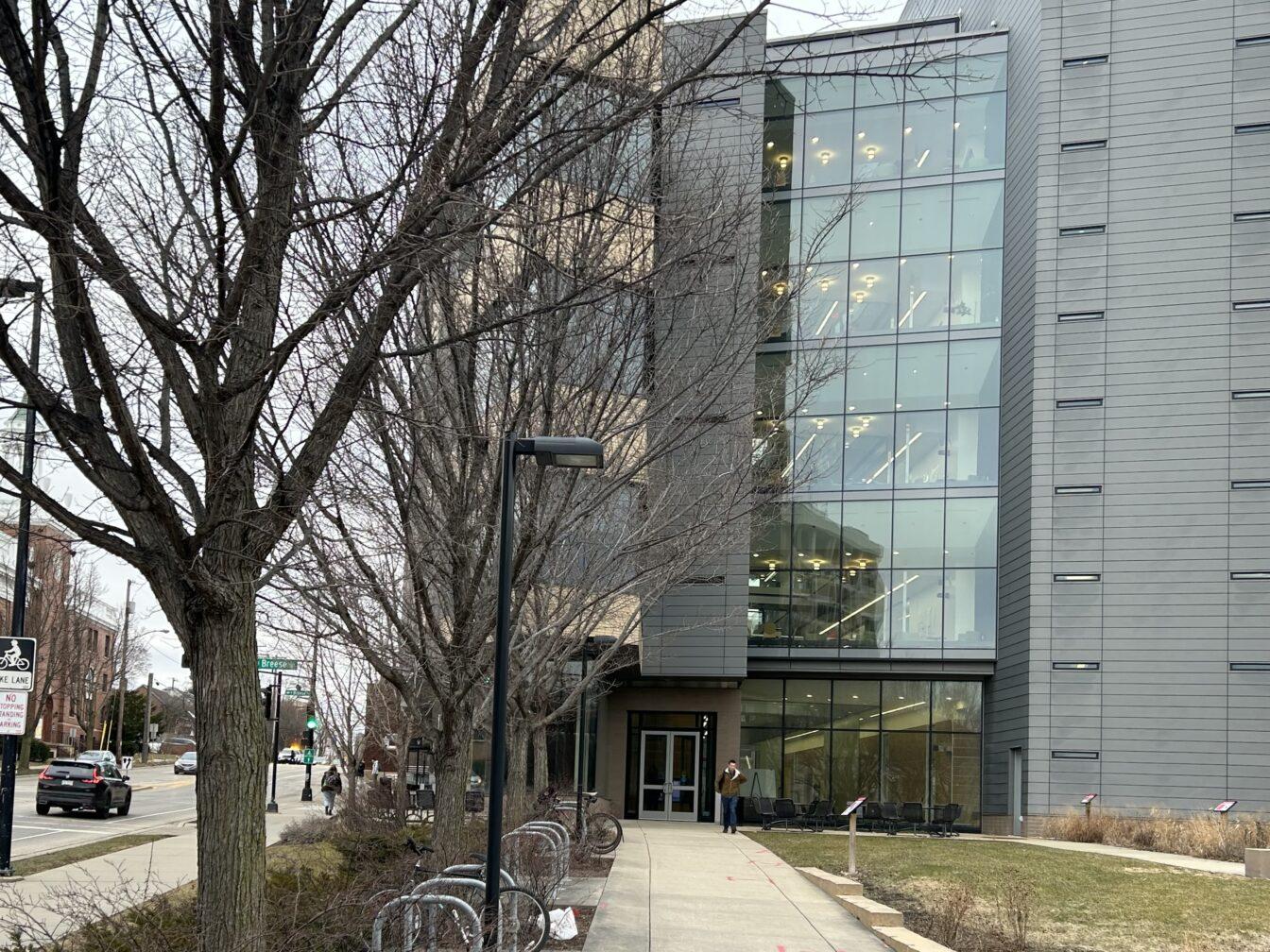
After a 50-year struggle to rebuild a population in Wisconsin, the gray wolf has been taken off the federal endangered species list in the Midwest and has become the center of a hunting controversy in light of numerous problems with wolves interfering with livestock and homes.
Last Friday, federal officials from the U.S. Fish and Wildlife Service took the gray wolf off its list of federally protected endangered species for the Great Lakes area, and handed control of the population over to the Wisconsin Department of Natural Resources, a DNR statement said.
“We’ve been fighting hard to gain this authority, and we are grateful to the U.S. FWS for removing gray wolves in the upper Midwest from the lists of endangered and threatened species,” DNR Secretary Cathy Stepp said in the statement. “We are ready and capable of managing Wisconsin’s wolf population at a healthy, sustainable level and we welcome the opportunity to begin addressing those areas where problem wolves are attacking domestic animals.”
A problem wolf is either a wolf or wolf pack that has attacked livestock or domestic animals or approached homes or humans in the past year, DNR spokesperson Bob Manwell said.
The DNR plans to issue farmers and landowners who have reported wolf depredations permits to kill wolves, Manwell said. A wolf depredation is when a wolf attacks livestock like cows, sheep or domestic animals.
A DNR database contains most of the data about wolf depredations. Manwell said DNR plans to mail letters this week to those who have reported the depredations, containing information on how to apply for a permit.
“This privilege is only available to owners on their property and not in public woods,” Manwell said.
To qualify for the permit, a DNR official must verify the wolf depredation, Director of Governmental Relations for the Wisconsin Farm Bureau Federation Karen Gefvert said.
The depredation has to have happened in the last two years and must be visible for a permit, which is good for 90 days.
When DNR receives a report of wolf depredation, they refer the report to the U.S. Department of Agriculture-Wildlife Service, who sends employees within 24 hours to determine if wolves injured or killed the livestock or domestic animal, Manwell said.
Manwell added that when killed, the wolves would not become the property of the person shooting them, and the carcasses must be given to the DNR.
Manwell said the DNR is not currently creating a wolf hunt, as the word “hunt” implies anyone could get a permit. He added that there are no plans to do so in the future.
However, a group of Assembly lawmakers introduced a bill Friday that would create a wolf hunting and trapping season from Oct. 15 through the end of February. According to the bill, the DNR would limit the number of licenses issued and the number of wolves hunters could harvest.
The bill would divide the state into four zones where wolves can be hunted, and hunters would be granted permits to only hunt in one zone. Both state and out-of-state residents could apply for the permits.
In a survey conducted in 2009 by the University of Wisconsin Nelson Institute for Environmental Studies, six percent of 649 residents of Wisconsin’s wolf range, which includes Butternut, Owen and Wausau zip codes, said they would not support a wolf hunt.
Of the approximately 94 percent who supported a wolf hunt, about 47 percent said they would support opening a hunting season immediately.
About 30 percent said they would support a hunting season if biologists thought the wolf population could sustain the harvest, and about 17 percent said the DNR should open a hunting season only when wolf depredations become unmanageable.
Thomas Heberlein, a UW community and environmental sociology professor and expert on public attitudes toward wolf restoration, said in an email to The Badger Herald that people in rural areas generally have less positive views of wolves than people in urban areas.
He added that he believes the de-listing and implementation of a hunting season, not just what the DNR has proposed, will lead to more positive attitudes toward wolves in rural communities.




















